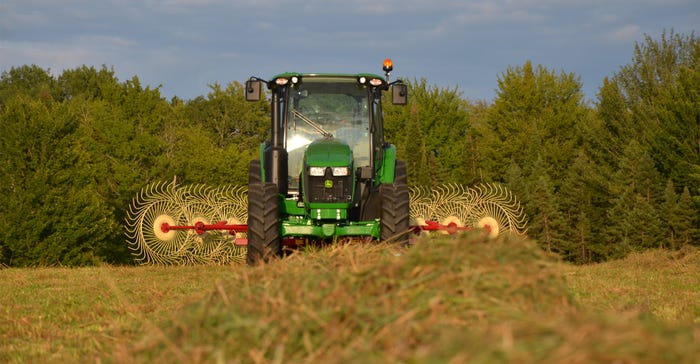
More than 200 participants attended Michigan State University’s second annual Michigan State University’s Agriculture Innovations Day Aug. 24 at the Lake City Research Center.
This year’s event centered on forages and the future. “One of our goals was to provide information people could take home and implement, and there were several comments people made that they felt they could do that,” says Ron Bates, MSU Extension agriculture and agribusiness director.
Nine breakout sessions and demonstrations on new and emerging technologies were led by experts, scientists and researchers encompassing everything from forage storage and monitoring to grass-fed beef and cattle monitoring options.
This the second year for Ag Innovation Day, which was developed two years after Ag Expo was discontinued.
It was decided that Ag Expo no longer met the needs of the Michigan Agricultural Industry, and Ag Expo was not held in 2015,” Bates said. “A steering committee of Michigan agricultural leaders was formed to advise the college on what should better suit the needs of Michigan agriculture in the future. The recommendation from this steering committee was to have a first-class educational event each year, as an avenue for delivering information specific to the current issues facing Michigan agriculture.
“In addition, this new event should move throughout the state, providing cutting-edge information based on the identified needs in that specific locale.”
The first year focused on soils and was hosted by the MSU Saginaw Valley Research and Extension Center.
Bates says they have not picked the theme or the dates for the 2018 event, but it will be held at the Southwest Michigan Research and Extension Center.
Lake City facility
Established in 1928, the Lake City facility includes over 1,100 acres of managed land and 180 head of grass-fed beef cattle, which has started to command higher premiums than feedlot-finished beef.
For those considering a management change, MSU Extension beef educator Kable Thurlow led a session that highlighted results from a five-year study on how to successfully implement grass-fed beef production on Michigan farms, which included a cost analysis for farm profitability.
“The work on grazing and grass-finishing beef is considered leading work not only nationally but worldwide,” Bates says.
During a break in the sessions, MSU President Lou Anna K. Simon and Ron Hendrick, dean of the College of Agriculture and Natural Resources, spoke at the dinner, which featured grass-fed beef raised at the center.
“Overall we were happy with how the event came together and how the sessions were received by the participants,” Bates said. “The staff at the Lake City Research Center did a great job of getting the facility ready and our speakers did a great job in discussing the important points of their session. Participants seemed very happy with the information they received and the format of the program.”
MSU partners with others to provide the free event. This year event partners represented dairy, beef and forages; the seed industry; and Farm Bureau.
About the Author(s)
You May Also Like






